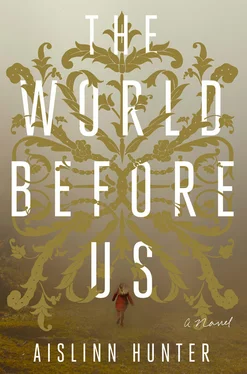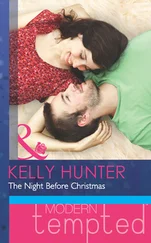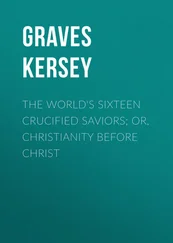The woods dreams are the ones Jane has most often, though in the past few months there have also been the usual sort about missed recitals and failed exams, about something bad happening to the dog, about her brother, Lewis, turning into a robot. And there have been dreams set in the museum where she works — though these are mostly about lost objects that turn up in the wrong cabinets or collections. We have our preferences, can behave like a pack of critics, sigh, “Not that one again” when the dream about Jane’s mother losing her in Marks and Spencer starts up, or turn away when the narratives become too strange, when they dwell too long on death or dying.
Sometimes when that happens we play a game. It’s a child’s game, but some of us are children. Besides, we know all games have a purpose: they prepare you for the world you are about to enter, inform the character of the person you are to become. We call this game “Where Is It?” and we start by taking turns. One voice calls out a question: “What’s my name?” or “Where was I born?” or “How far have I travelled?” or “What age do you think I am?” And those of us in the room begin to look for the answer in the things around us. We look on the spines of books; we look in Jane’s picture frames, in the water glass on the bedside table. We look in the closet, in her yawning handbags, in the hollows of her pencil skirts and dresses. We skim the empty music stand, peer down the sound holes of the cello, repeat the question into the black slot of its S then wait to see if it will send back an answer. We finger the knotted ends of the blue rug, gaze out the window that looks over the city street. When we get bored, the one who asked the question will coax us on by repeating the question—“Where is it?”—and we’ll move into the living room and run our eyes over the potted fig, the wingback chair, trace the swirling limestone fossil Jane’s brother gave her one Christmas. Then we’ll look in the gap between the sofa and its cushions, peer into the rubbish bin. “This is easier in the museum,” we’ll say, but shrug and keep going: inspect the Dutch jug from the market, the bird’s nest Sam sniffed out in the park, the soft folds of the curtains. We’ll stare into the blank screen of the telly, at the mirror above the dining room table, look into the rounds of the spoons in the drying rack — but we’ll see and find nothing.
In the past few weeks we’ve begun looking under the far side of the bed at the box where Jane put her research papers, near the blanket the dog sleeps on. If we’re feeling really brave we stay there, let Sam stretch his neck, sniff the air in our direction, his spaniel’s face as white as a lamb’s, his brown eyes curiously discerning. Yesterday he gave a low growl and those of us who were studying the box gave up and moved slowly back to our corners. That’s when we saw Jane curled up and sleeping. “There it is!” we said. “In there!” Thinking, Of course! Finally! We knew the answers must be hiding somewhere .
At seven o’clock Jane comes back from walking Sam around the green. She puts his leash on the kitchen counter for Dora, drops some food into his bowl and starts to get ready for work. Standing in front of her wardrobe, she tries to steady her thoughts, to focus on what she has to do in these next two weeks before the museum closes for good. Today is the last day of public admission, and tonight is the Chester’s official farewell party, a gala timed to coincide with the annual Chester-Wood Book Prize lecture and reception. A month ago, William Eliot, botanical keeper at the Natural History Museum, was announced as the recipient of this year’s prize for his non-fiction book The Lost Gardens of England . In less than twelve hours he will take the podium to deliver a lecture and talk about his work. Jane has not seen William since she was fifteen years old, and even though there is a part of her that wants to believe otherwise, she is certain he will not want to see her now.
Pressing the pads of her fingers against the puffiness under her eyes, Jane steps back to check her appearance in the bathroom mirror. She is thirty-four. She is not vain but knows she is pretty enough. Her mother was stunning — which is how Jane grew into her own self-assurance: by basking in the attention spilled onto her by men caught up in her mother’s beauty. Tying her hair up, Jane thinks again about N, wonders if she was tall, if she was pale-skinned, if she had dark hair. In the dreams N always resembles her — not the girl Jane was at eighteen, but the woman she is now: high cheekbones, pert nose, a tendency to blush when self-conscious. Her former boyfriend Ben once remarked, just after he’d moved in with her, that Jane reminded him of a deer, all that nervous, pent-up energy. He was running a finger over her collarbone, imagined he could feel a tremor. She took his comment the wrong way, as she often did, swatted at his hand and got out of bed. She threw his trousers at him, forgetting that he lived with her now and had no apartment of his own to retreat to. He thought it was funny, tried pulling her back down, said, “Come on, I love deer. What’s not to love?”
We know what Ben meant, have come across deer at the edges of woods, along thickets — the pulse visible in their necks. Animals that will either bolt when seen or stand so still they can be right in front of you and remain unnoticed.
The morning unfolds like any other: we watch Jane get dressed, watch her eat toast and cheddar leaning against the counter in her yellow kitchen. Together we listen to the BBC news on the radio: flood warnings in the east, economic crisis in the west, a group of miners stranded underground in a country so distant some of us have never heard of it. “They have sent up a note,” the man being interviewed says. “We are drilling air holes, there is reason for hope.”
Six weeks ago Gareth came back from his meeting with the Minister of Culture, called the senior staff into his office and announced that the museum would be closing. We turned to Jane to see what that might mean. Until that point, we believed we were still learning who we might be: following Jane like a pack of hounds, staring at the files she read, the objects she held, sometimes saying, “I know this!” Our days were spent huddling around astrolabes, stuffed tortoises, samplers, mustard pots, surgical tools, old diaries, photographs of estate lawns we might once have walked across. Some of us went back to the same objects again and again — a set of pearl hair combs, a galvanizing machine, the glass case of hummingbirds in the entry hall — stuttering toward our own names, sounds we thought might be familiar. But then Gareth gave everyone the news and a kind of panic set in.
For years we had been trying to mimic what we had seen Jane do with the museum collections: to catalogue, list and cite ourselves. We endeavoured to keep track of each other, tried to pay attention to who thought what. Most days this proved difficult. We have little in common: some of us are old, some young; the places or times we lived in feel different. And since we have no names to go by, we resort to epithets: The One with the Soft Voice, The Poet, The Musician, The Theologian, The One Who Sucks on His Teeth, The One Who Never Speaks, The Boy, The Girl, Cat, The Idiot. And then there are the transients, the passersby and the passers-through.
When remembering what documents or objects we’d circled or what things in the museum we’d returned to proved difficult, we braved philosophy. When that didn’t work, we began our interrogations, asking each other quick sets of questions to try to find even a stitch of memory to build on. What food did you like? What do you see when I say “green”? What clothes can you imagine yourself wearing? Who did you love? What noises surround you? What is your name? The answers, if they come at all, come slowly or in the form of further questions: progress in circles. We keep at it even though some of us are easily frustrated, some tired, sad or mean; even though some of us do nothing but run around the flat after Sam, barking like otherworldly animals.
Читать дальше












